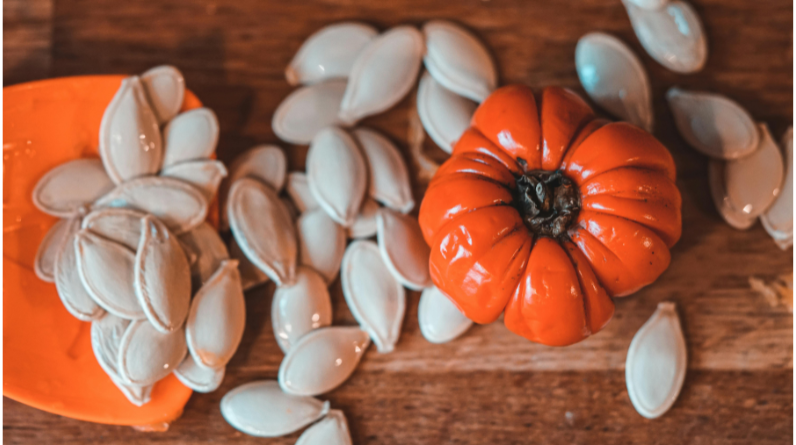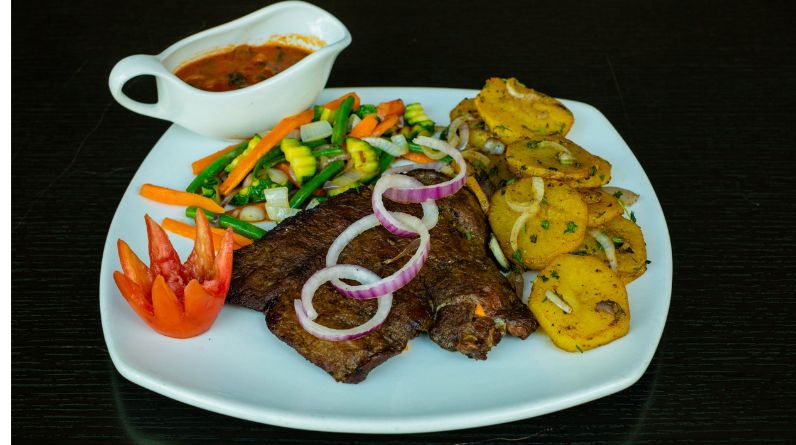
For overall health and well-being, it’s crucial to keep a robust immune system. While various factors influence immune function, nutrition plays a vital role in supporting and boosting the body’s natural defense mechanisms. Certain nutrients have been found to have immune-boosting properties, helping to strengthen the immune system and protect against illnesses. In this comprehensive guide, we will explore the importance of immune-boosting nutrients and how you can incorporate them into your diet to support your body’s defenses.
Introduction
The immune system is a complex network of cells, tissues, and organs that work together to defend the body against harmful pathogens and maintain health. For the immune system to work properly, sufficient nourishment is essential. Consuming a well-balanced diet rich in immune-boosting nutrients can provide the body with the necessary tools to fight off infections, reduce the risk of chronic diseases, and promote overall wellness.
Immune-Boosting Nutrients
Several key nutrients play a significant role in supporting immune function. Here are some important immune-boosting nutrients and their sources:
1. Vitamin C
Vitamin C is a powerful antioxidant that supports immune health by stimulating the production and function of various immune cells. It also helps protect immune cells from damage caused by free radicals. Good sources of vitamin C include citrus fruits (such as oranges and grapefruits), strawberries, kiwi, bell peppers, broccoli, and spinach.
2. Vitamin D
Vitamin D is not only essential for bone health but also plays a crucial role in modulating immune function. It helps regulate the activity of immune cells and enhances the body’s defense against infections. The primary source of vitamin D is sunlight exposure, but it can also be found in fatty fish (such as salmon and mackerel), fortified dairy products, and egg yolks.
3. Zinc
Zinc is a mineral that supports immune function and helps with wound healing. It is involved in the development and function of immune cells and acts as a cofactor for various enzymes involved in immune responses. Good sources of zinc include lean meats, seafood (such as oysters and crab), legumes, nuts, and seeds.
4. Selenium
Selenium is a trace mineral that has antioxidant properties and is crucial for immune function. It supports the formation of antibodies and aids in the control of immunological responses. Good dietary sources of selenium include Brazil nuts, seafood (such as tuna and sardines), whole grains, and eggs.
5. Vitamin E
Vitamin E is another antioxidant that helps protect immune cells from oxidative damage. It also enhances the function of certain immune cells and supports overall immune health. Good sources of vitamin E include nuts and seeds (such as almonds and sunflower seeds), spinach, and broccoli.
6. Probiotics
Probiotics are beneficial bacteria that promote a healthy balance of gut microflora. They play a crucial role in maintaining gut health, which is closely linked to immune function. Fermented foods such as yogurt, kefir, sauerkraut, and kimchi are good sources of probiotics.
Incorporating Immune-Boosting Nutrients Into Your Diet
To ensure optimal intake of immune-boosting nutrients, it is important to adopt a well-rounded and varied diet. Here are some tips to incorporate these nutrients into your daily meals:
1. Eat a Colorful Variety of Fruits and Vegetables
As they are high in vitamins, minerals, and antioxidants, include a variety of fruits and vegetables in your diet. Aim to consume a rainbow of colors to obtain a wide range of nutrients. Citrus fruits, berries, bell peppers, leafy greens, and cruciferous vegetables are particularly beneficial for immune health.
2. Include Lean Proteins
Incorporate lean sources of protein into your meals, such as poultry, fish, legumes, and tofu. These foods provide essential amino acids needed for the production of immune cells and antibodies. Seafood, in particular, is a good source of immune-boosting nutrients like zinc and selenium.
3. Choose Whole Grains
Opt for whole grains like brown rice, quinoa, oats, and whole wheat bread, as they contain higher levels of immune-boosting nutrients compared to refined grains. Whole grains also provide dietary fiber, which supports a healthy gut microbiome.
4. Consume Healthy Fats
Include sources of healthy fats in your diet, such as avocados, nuts, seeds, and fatty fish. These foods provide omega-3 fatty acids, which have anti-inflammatory properties and support immune function.
5. Add Fermented Foods to Your Diet
Incorporate probiotic-rich foods into your meals, such as yogurt, kefir, sauerkraut, kimchi, and other fermented vegetables. These foods introduce beneficial bacteria into your gut, promoting a healthy balance of microflora and supporting immune health.
6. Consider Supplementation
If you struggle to obtain sufficient amounts of immune-boosting nutrients from your diet, you may consider supplementation. Consult with a healthcare professional or registered dietitian to determine if supplements are necessary and to ensure appropriate dosage.
Conclusion
Understanding the importance of immune-boosting nutrients is crucial in supporting our body’s natural defense system. A robust immune system is essential for protecting us against infections, viruses, and diseases, and certain nutrients play a key role in enhancing its functionality.
Vitamins such as vitamin C, vitamin D, and zinc, along with minerals like selenium and iron, are vital for supporting the immune system. These nutrients help strengthen the body’s response to pathogens and help reduce the risk of illnesses. Antioxidants found in fruits, vegetables, and nuts also play a significant role in neutralizing harmful free radicals that can weaken the immune system.
Maintaining a balanced and varied diet rich in immune-boosting nutrients is essential for overall health and well-being. Whole foods, including colorful fruits and vegetables, whole grains, lean proteins, and healthy fats, provide a wide array of vitamins and minerals that contribute to a healthy immune system.
In addition to nutrition, other lifestyle factors, such as regular exercise, adequate sleep, stress management, and good hygiene practices, also play a crucial role in supporting immune function. Engaging in physical activity, getting enough rest, managing stress, and practicing good hygiene can further bolster our body’s ability to fend off infections and maintain optimal health.
While a healthy diet and lifestyle are foundational for a strong immune system, supplements can be considered when specific nutrient needs are not met through dietary intake alone. However, it is essential to consult with healthcare professionals before taking any supplements to ensure they are appropriate for individual needs and health conditions.
By taking a proactive approach to nourishing our bodies with immune-boosting nutrients and adopting a healthy lifestyle, we can empower ourselves to support our body’s defenses and reduce the risk of illness. Remember, a well-supported immune system is our body’s best ally in maintaining overall health and vitality, enabling us to lead a vibrant and active life.
Frequently Asked Questions
1. Can immune-boosting nutrients prevent illness?
While immune-boosting nutrients play a crucial role in supporting immune function, they cannot guarantee the prevention of illnesses. A strong immune system is influenced by multiple factors, including genetics, overall health, lifestyle, and environmental factors. Consuming a balanced diet rich in immune-boosting nutrients, along with practicing good hygiene and adopting a healthy lifestyle, can help support your immune system.
2. Can I get all the necessary immune-boosting nutrients from supplements alone?
While supplements can provide additional support, it’s generally best to obtain nutrients from whole foods as part of a well-rounded diet. Whole foods contain a wide range of nutrients and other beneficial compounds that work synergistically to support overall health. Supplements should be used to complement a healthy diet and as advised by a healthcare professional.
3. Are there any risks associated with high-dose supplementation of immune-boosting nutrients?
Yes, excessive intake of certain immune-boosting nutrients, particularly through high-dose supplementation, can have adverse effects. Before beginning any supplements plan, it’s crucial to adhere to the advised dosage recommendations and seek medical advice.
4. Can I take multiple immune-boosting supplements together?
Combining multiple immune-boosting supplements is generally safe when done in moderation and within the recommended dosage guidelines. However, it’s important to consult with a healthcare professional or registered dietitian to ensure there are no potential interactions or risks associated with the specific combination of supplements.
5. Are there any specific dietary restrictions for immune-boosting nutrients?
In general, a well-balanced diet that includes a variety of nutrient-rich foods can help support immune health. However, individuals with specific dietary restrictions or allergies should seek guidance from a healthcare professional or registered dietitian to ensure they obtain the necessary immune-boosting nutrients through alternative sources.
6. What are immune-boosting nutrients, and how do they support the immune system?
Immune-boosting nutrients are vitamins, minerals, antioxidants, and other compounds that play a vital role in supporting the immune system’s function. These nutrients help strengthen the body’s defenses, promote the production of immune cells, and enhance the body’s ability to fight off infections and illnesses.
7. Which nutrients are essential for a healthy immune system?
Several nutrients are crucial for a healthy immune system. These include vitamin C, vitamin D, zinc, selenium, iron, and antioxidants like vitamin E and beta-carotene. Consuming a well-balanced diet that includes a variety of fruits, vegetables, whole grains, lean proteins, and healthy fats can provide these essential nutrients to support your immune system.
8. Can supplements help boost the immune system?
Supplements can play a role in supporting the immune system, especially when nutrient deficiencies are present or when dietary intake is inadequate. It’s crucial to remember that supplements shouldn’t take the place of a balanced diet. They should be used as a complement to a balanced eating pattern. Consult with a healthcare professional or registered dietitian to determine if supplementation is necessary based on your individual needs and health status.
9. Can specific foods or diets enhance immune function?
While no specific food or diet can guarantee immunity against illnesses, certain dietary patterns can support a healthy immune system. Consuming a variety of nutrient-dense foods, including fruits, vegetables, whole grains, lean proteins, and healthy fats, can provide the essential nutrients needed for optimal immune function. Additionally, maintaining a healthy weight, staying hydrated, and managing stress levels can also contribute to a robust immune system.
10. Are there any lifestyle factors that can impact immune function?
Yes, various lifestyle factors can influence immune function. Getting regular exercise, adequate sleep, and managing stress levels are important for supporting a healthy immune system. Engaging in activities that promote overall well-being, such as practicing good hygiene, avoiding excessive alcohol consumption, and refraining from smoking, can also have a positive impact on immune function.
Remember, supporting your immune system involves consuming a nutrient-rich diet, leading a healthy lifestyle, and practicing good hygiene. While immune-boosting nutrients play a role in supporting immune function, they are not a guarantee against illnesses. Consulting with healthcare professionals or registered dietitians can provide personalized advice on incorporating immune-supportive nutrients into your diet and lifestyle.







1 Comment
Comments are closed.